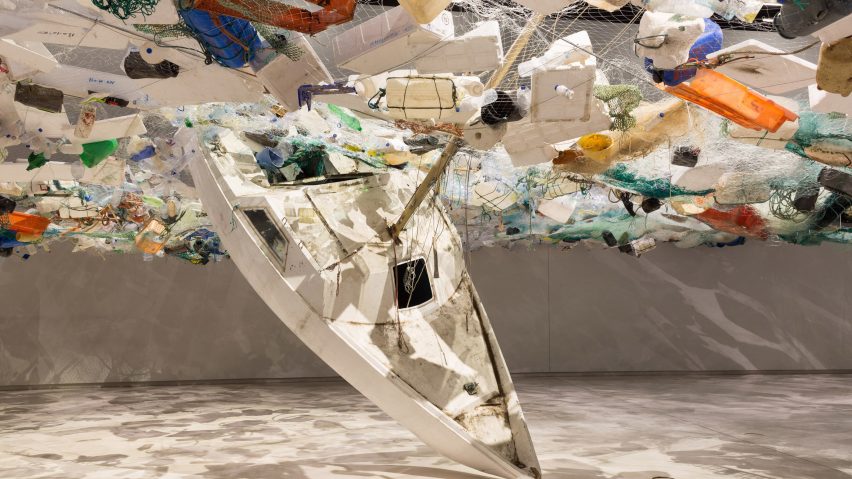
Tadashi Kawamata fills Lisbon's MAAT with plastic to warn about ocean debris
Paris-based artist Tadashi Kawamata has created a monumental installation of ocean plastic in the Oval Gallery of Lisbon's Museum of Art, Architecture and Technology.
The exhibition, called Over Flow, was commissioned by the Portugese museum to draw attention to the proliferation of plastic debris in our oceans.
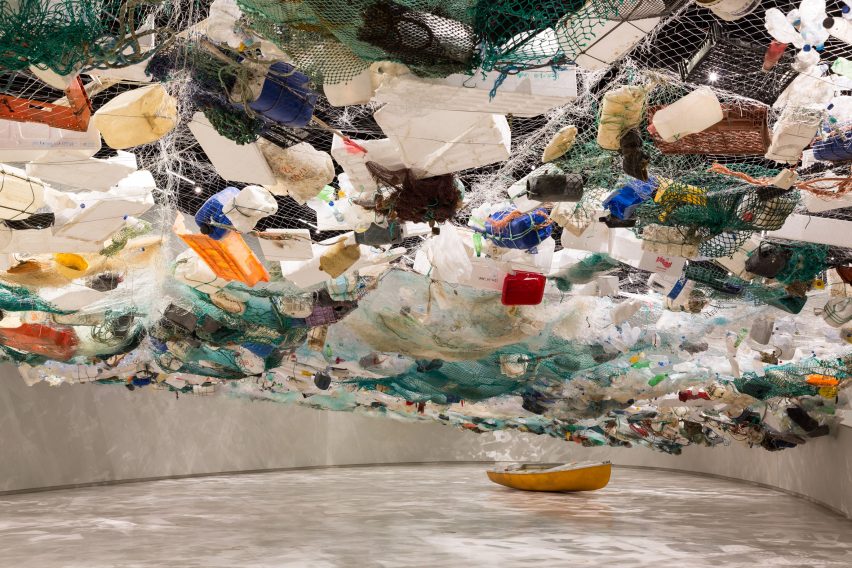
The large-scale commission is made up of plastic waste as well as boats, collected on the country's coastline by the volunteer clean-up group, Brigada do Mar.
The group started out in 2009 with the objective of cleaning up coastal areas and protecting biodiversity. According to Brigada do Mar, every year they are able to clean up 28 miles of beach, removing between 20 and 30 tons of plastic litter, with a permanent team of 50 volunteers and many other volunteer members.
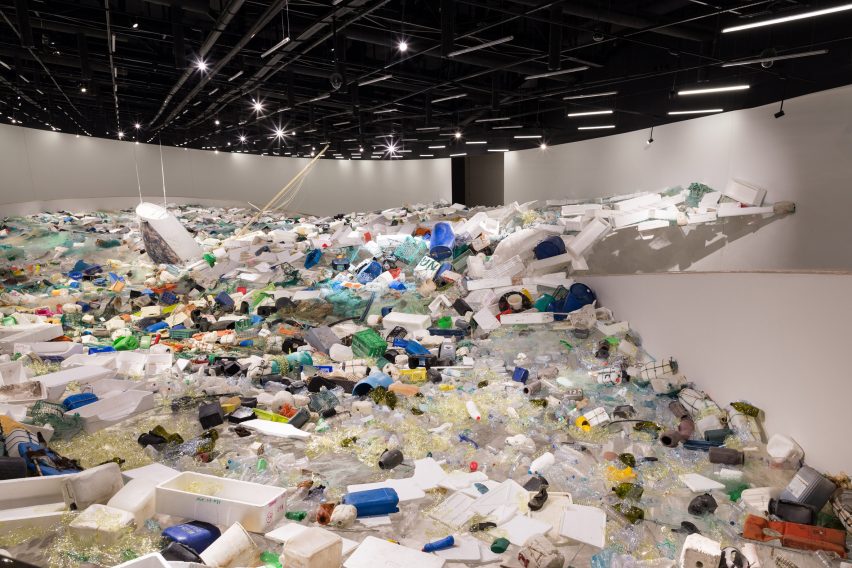
The collected debris fills the gallery space in a sculptural form arranged by Kawamata to resemble an imagined version of the aftermath of an environmental disaster. Visitors are able to walk about under a canopy of plastic waste.
"Over Flow is a truly immersive installation, inviting viewers to experience a seascape of remains which follows a fictional ecological catastrophe," said the museum.
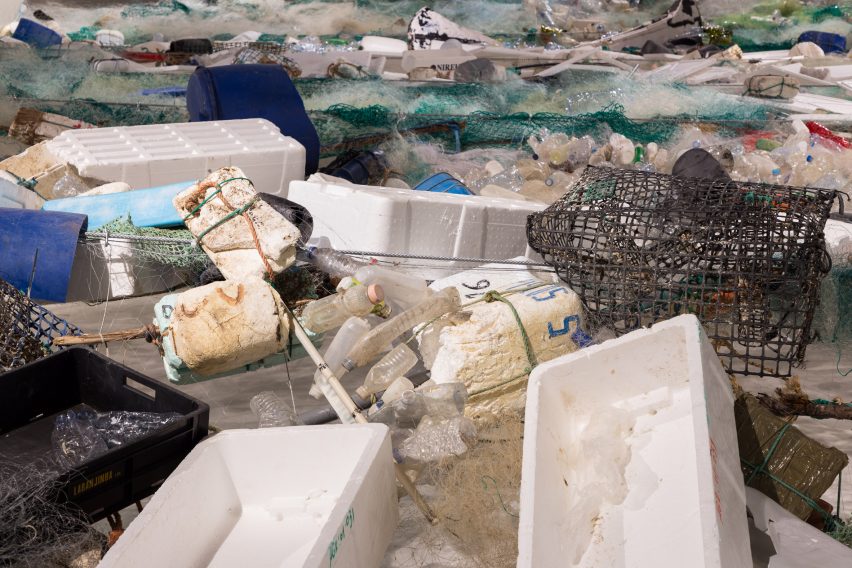
In creating this piece, Kawamata was responding to his memory of the Tohoku earthquake and tsunami in Japan in 2011, but also echoing the Museum of Art, Architecture and Technology's (MAAT) location near the coast.
The piece was put together over the course of a year of research and field work in Portugal, which culminated in a workshop involving the local community, led by art and architectural collective Os Espacialistas, during which the design of the exhibition was finalised.
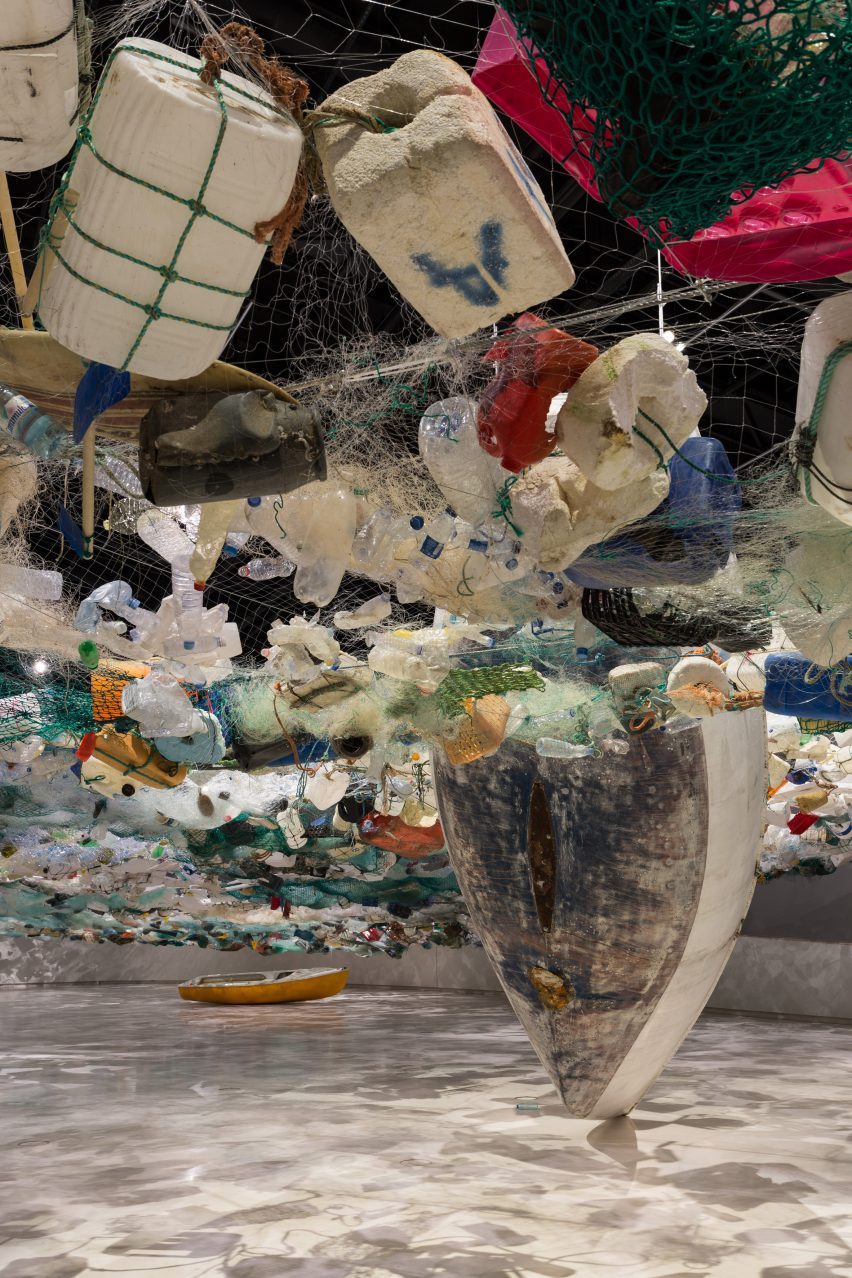
The exhibition is curated by MAAT director Pedro Gadanho and curator Marta Jecu. The work is the sixth site-specific commission for the Oval Gallery, and draws on existing themes in the artist's body of work.
"Kawamata has often worked with themes of overconsumption and excess, and working for the first time with plastic debris logically related to the accounts of maritime trash arriving in the region's coastal areas," said Gadanho.
In her curatorial text about the exhibition, Jecu questions the role of the visitor at a disaster site like the one the exhibition represents.
"As a viewer of Kawamata's installation, we re-enact a position of disaster tourist, coming to explore the spectacularity of destroyed sites – similar to the subculture of illegal tourism around the Fukushima site," said Jecu.
"It is important to ask, beyond mere contemplation, how can a work of art activate a regenerative potential latent in the disaster depicted," she continued.
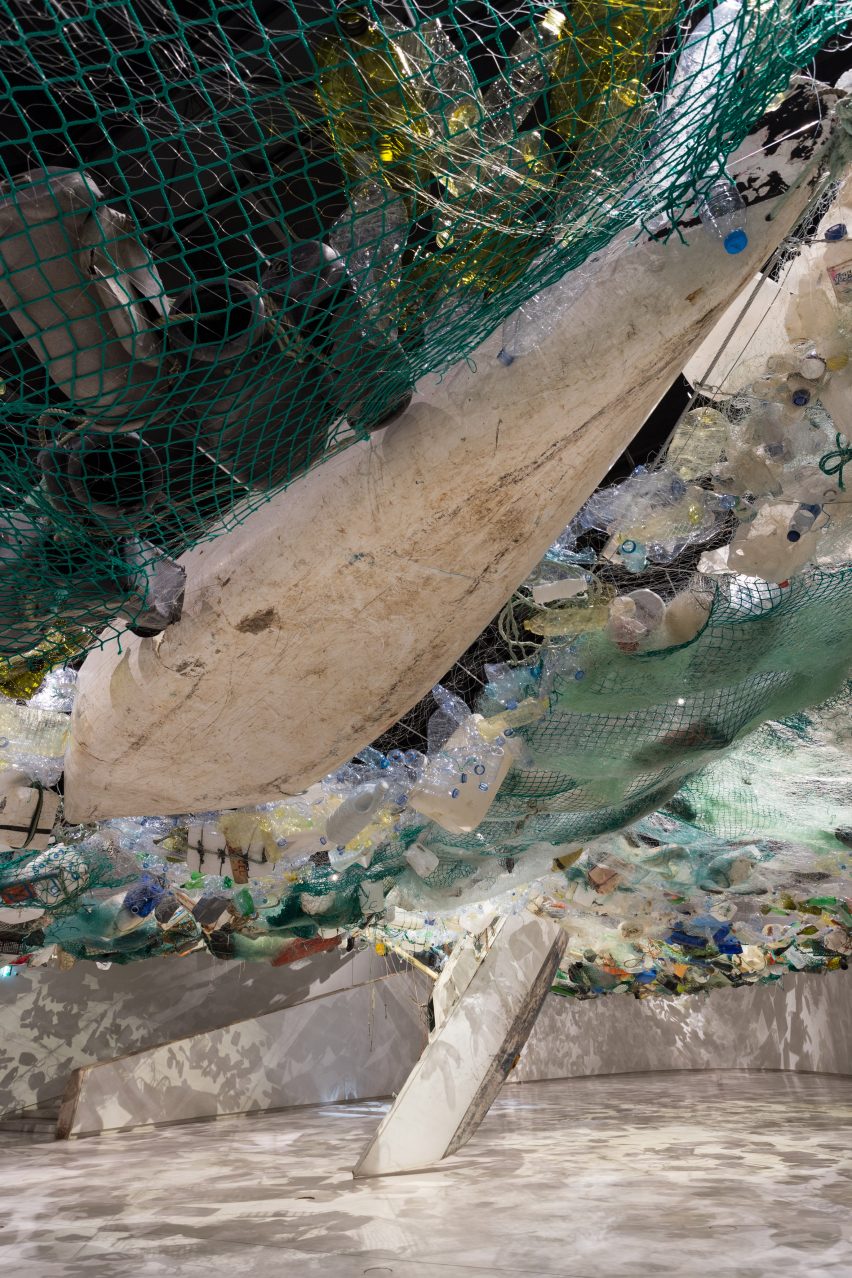
The work is intended to demonstrate to the viewer the devastating effect that our current human activity has on the natural environment, and to encourage them to act.
"At a time when we must get a grip on our impact over nature's stability – and overcome indifference and incredulity at this topic – Over Flow makes ecological consciousness visceral and palpable," said Gadanho.
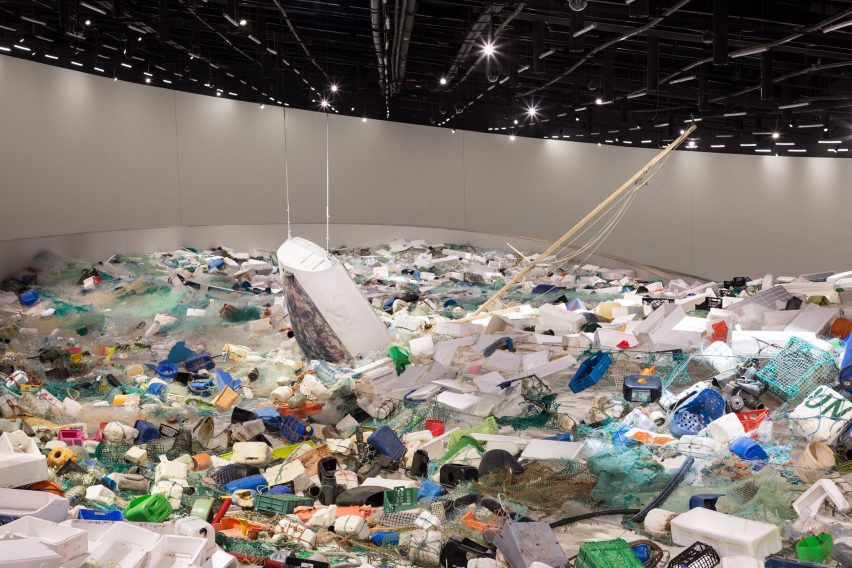
The exhibition runs until 1 April 2019 at the MAAT's Oval Gallery. Other exhibitions running simultaneously include a work curated by Michael Elmgreen and Ingar Dragset called Scenario in the Shade, that looks at urbanism, community, ritual and psychopharmacology.
Last month the first large-scale clean-up operation of the Great Pacific Garbage Patch launched from San Francisco, in a bid to remove some of the 1.8 trillion pieces of plastic that the patch contains.